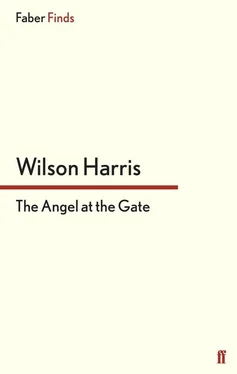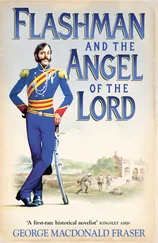That lift was so nebulous, so uncertain, it may not have occurred at all. Yet it was there; it gave a gentle wave or groundswell to the static root or the vertical dance of each processional body. It also imbued the women with enigmatic privacy. Were they on their way to a wedding or a wake? To ask them was to be greeted with a smile one could not interpret. Was it the smile of secret mourning or secret rejoicing? Were they oblivious of secret, ecstatic ladder of space? Did they incline without knowing it into psychology of stasis, the stasis of the hills?
Jackson heard Lucy Brown’s voice again — her obsession with sudden death in the street, her obsession with her own funeral side by side with intimate (almost naked) desire for her daughter to marry “a good man with a bit of money in the bank”. No wonder her fear of immodest exposure possessed an involuntary compulsion or subconscious strip-tease funeral expectation (the eyes that would see her, the hands that would touch her) woven into a vision of her daughter’s wedding….
Such unconscious or subconscious strip-tease was an aspect of enigmatic privacy laid bare in half-comedy, half-tragedy, of Angel Inn mirror. It was an aspect of strangest carnival strip-tease of oblivious mankind, obliviousness of fashionable bullet-ridden nudity in the eye of the camera, obliviousness of Stella’s nudity in the street, obliviousness of Sukey Tawdrey’s rag dances of refined, imperial bombast, obliviousness of Mother Diver’s shawl of possessions.
All this moved like a stroke of mingled lust and sorrow in young Lucy’s dream-body, hard-edged, disturbing beauty, in the mirror of spectres by which Jackson was held in Mary’s “fictional book”. A series of reflections filled his mind from nowhere it seemed. She was a stubborn young woman, no one would deny. But there was more to it than that. The file of the folk by which Mary’s mirror had invested her emphasized that her feet were upon the ground but also made darkly clear the precarious linkage of secret ladder of space and static hill of earth. The link was actually broken, the static had begun to engulf them, that file of women, even in those far-off days of his boyhood.
He was witnessing — without realizing it — in that procession he saw in the hills, the regression of the dying folk into mysterious tune of love and death: mysterious attunement to a gulf or divide between sky and earth, between territorial, animal imperative and humankind or human space within all innocent/guilty, sad/happy places where Mack the Knife had moved or settled upon and around the globe….
Jackson recalled with sorrow how he himself had fallen from the ladder of space and into that fall was threaded his “lost” daughter of Man. Or was it that a descent of “daughter” was needed to match an imperfectly understood notion or “ascent” of son — daughter of man, son of man? The question loomed in Mary’s automatic book.
The question brought the hills into his room as he faced the two women and listened to Lucy Brown’s appeal to “talk” to her daughter. The silent hills were running down to the sea not up to the sky. The rivers ran down the island of his boyhood to a sea that possessed so little tidal range there was no reversal of flow back upland or inland. Until the silent hills grew again to match the faint ascent of the spidery rain into the great cloud ancestors of Anancy heaven.
“Ah,” said Jackson turning away from the Jamaican hills to the young woman of Notting Hill, “to fulfil your mother’s trust …” he was speaking to himself “… I must learn to be silent in the face of your obliviousness, I must learn to paint or sculpt what lies stranded between earth and heaven….” He stopped. He looked at her with longing and clouded eyes. Lucy was so young. The minute hand of the clock moved in him to embrace her as Stella had embraced Mary by the hospital gates; as Khublall had embraced his child-bride a long time ago in the riddle of death and love.
Nineteen Lucy was but she seemed younger. He wanted to touch her like a painter or a sculptor and in so doing to create through the mystery of temptation.
What was that temptation? Enchantment with the womb of nature, an enchantment that remained the greatest danger still in bedevilled populations around the globe.
It had led to the arousal of the furies. It had damned him across a generation, no, longer than that, it seemed, a century, two centuries, three. It had given him, only to pluck from him, his “daughter of man”.
And now as he looked at Lucy the temptation was in flower again but with a difference. In the greatest flowering danger lies the greatest prize of artistic wisdom. Lucy was smiling at him as if she knew, yet did not know what he was saying to her, a Mona Lisa smile.
Does every lost daughter of man change into unconscious child-bride within cultures that are stranded between animal divinity and human divinity?
The notion was staggering. It explained so much. It made him see with the eyes of ancient cultures conditioned by the bizarre purchase of love, inner fury that sets its seal of remorse or grief upon sanctioned rape.
Does every sculptor, painter, enchanted by the womb, imply humanity’s involuntary proneness to revert to feudal tradition however camouflaged by technology or promiscuity?
Why could he not reach out and seize Lucy by the nape of her exquisite neck, or by the lips with his lips upon her secretive, enigmatic, curiously hard mouth?
The cat-and-mouse metaphor made him laugh. How ridiculous. Hard lips indeed. The fact is she was practical. He was middle-aged. She had no use for him. And yet it was clear that her very hardness matched his coolness and sobriety, and that his invisibly enraged mind possessed therefore some counterpart in hers. And that was the key to her danger less from him than from some other ancient grievance dressed up in twentieth-century sentiment or authoritarian regime.
Her flat-earth practicality or rejection of cosmic hope could conceal the masked intentions of others in the grip themselves of compulsive illness or regressive force they little understood.
There was nothing he could say to her now. Silence was a measure of terrifying love that creates through every temptation to seize or to speak. There was a time to accept oneself as rooted in the hardness of an age that only non-possessing love beyond given presences, given voices, given conventions, could begin to dissolve.
Fear of the abyss was the beginning of silence he had sensed on Bale in the fire of the hills and trees that had seemed to clothe the woman Mary. Thus in her dissolution lay the conversion of his obsession with the womb, her symbolic dissolution, the acceptance of chastening and mutual responsibility for the body of humanity. He was her authentic messenger of a gleam with which to retrace his steps into faint consensus of radical hope. He was both true person — his crown of hair echoing Marsden’s beard or cloak, fertile spirit, echoing intelligence — and a character in a book that begins to know himself, to thread himself into mutual anguish, mutual authorship between creatress and created.
Mary’s automatic narrative drew to a close. It was as if she knew that to be whole was to endure not only Stella’s comings and goings but the traffic of many souls, endangered souls, in ceaseless angelic/daemonic paradox that cures, yet never cures wholly.
Staring into the spiritual mirror, Mary had no illusions about the difficulties and the tragedies that the making of new community of self presented. They were rooted in her own riddles of body and mind and the tormenting camouflage that Joseph Marsden had helped her to begin to unravel.












